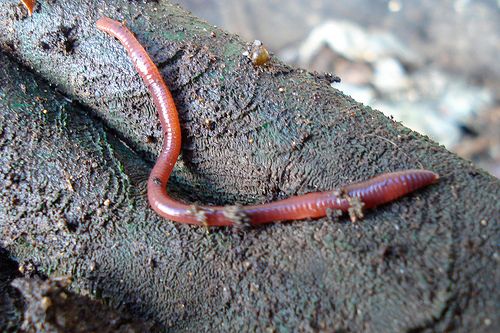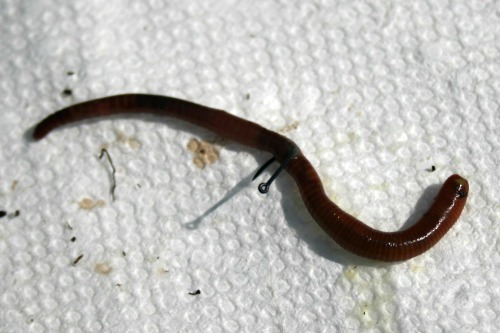Red Wiggler Express: A Reliable Name for Worms and Angling Needs
Red Wiggler Express: A Reliable Name for Worms and Angling Needs
Blog Article
Just How Red Wigglers Can Transform Your Composting Experience
The integration of red wigglers into composting practices provides a transformative method to lose administration and soil enrichment. Comprehending the certain demands and benefits associated with maintaining a thriving worm population is crucial for maximizing their potential.
Advantages of Red Wigglers
Red wigglers, medically referred to as Eisenia fetida, are a keystone of efficient composting systems because of their amazing capability to break down raw material efficiently. These worms master transforming cooking area scraps, backyard waste, and various other natural materials into nutrient-rich compost, typically referred to as worm spreadings. Lake Hickory Bait. This process not only lowers land fill waste however likewise adds to lasting horticulture practices
Among the key benefits of red wigglers is their high reproduction price, enabling them to inhabit a composting setting swiftly. This rapid reproduction improves decomposition prices, causing faster garden compost manufacturing. Additionally, red wigglers grow in a diverse range of problems, making them adaptable to various composting arrangements.

Establishing Your Worm Bin
(Granite Falls NC Worms For Sale)To produce an effective worm container for composting, cautious interest must be provided to its layout and atmosphere. An excellent worm container must be built of materials that are resilient yet permit needed air flow, such as plastic or wood. The dimension of the bin can differ, however a quantity of about 1 square foot per extra pound of worms is a good starting factor.
Ensure that the bin has drain openings to stop water build-up, which can bring about anaerobic problems harmful to the worms. Furthermore, including air flow holes will assist preserve correct moisture degrees and oxygen circulation.
Following, it is vital to supply bed linens for the worms, which can consist of shredded paper, cardboard, or coconut coir. This bed linens not only offers a habitat for the worms however likewise aids in moisture retention.
Setting the worm bin in a place that preserves a temperature level series of 55-77 ° F(13-25 ° C) to enhance worm task. Prevent putting the container in straight sunlight or extreme temperatures. By complying with these guidelines, you can create a conducive environment for red wigglers, enhancing the efficiency of your composting procedure.
What to Feed Your Worms

(Red Wiggler Express)Red wigglers particularly enjoy soft, wet foods like watermelon peels, cucumber peels, and banana peels. It is essential to avoid feeding them citrus fruits, onions, and garlic, as these can be destructive to their health. In addition, cooked foods, dairy items, and meat must be strictly avoided, as they can bring about odors and attract pests.
To keep ideal conditions, it's suggested to cut larger scraps right into smaller sized items, assisting in quicker disintegration. Start by introducing small quantities of food and check the worms' usage price; change as necessary to avoid overfeeding, which can create an undesirable environment. Supplying a constant feeding timetable will assist maintain your worm population growing while improving the total efficiency of your composting efforts. By recognizing what to feed your worms, you lay the groundwork for an effective and lasting composting experience.
Preserving a Healthy And Balanced Habitat
Producing a growing composting environment for red wigglers needs focus to their habitat, as it directly affects their wellness and productivity. The suitable environment needs to maintain a balanced wetness degree, generally in between 60-70%. Too much dampness can lead to anaerobic conditions, while inadequate dampness might dehydrate the worms.

The bedding material in the compost need to vary and shredded, integrating materials like cardboard, newspaper, and coconut coir. This not just offers a comfortable setting however also functions as a food resource. Lake Hickory Bait. Frequently looking for odors or indicators of insects can help recognize prospective issues prior to they intensify
Lastly, keeping a well balanced pH degree, preferably between 6 and 7, makes sure a conducive environment for red wigglers, fostering their capacity to process natural matter properly. By attending to these elements, you can develop a sustainable and effective composting community.
Harvesting and Making Use Of Compost
Collecting compost from a worm bin is a rewarding process that changes organic waste into nutrient-rich product for gardens and plants. When the composting cycle is complete, usually after 8-12 weeks, it's time to collect the vermicompost. The initial step involves separating the red wigglers from the completed garden compost. This can be done using approaches such as the "light" approach, where worms are attracted to light and can be scooped far from the leading layers, or by moving the garden compost away of the bin and adding fresh bed linens to the opposite side, motivating the worms to move.
When the worms are eliminated, the remaining compost can be filtered to remove any kind of bigger particles or undecomposed material. The final product ought to have a dark, crunchy structure and a positive natural smell, suggesting that it awaits usage. This rich compost can be applied Recommended Site directly to garden beds, mixed into potting dirt, or used as a top dressing for potted plants. By integrating vermicompost right into your horticulture techniques, you not just improve soil fertility however also promote healthy and balanced plant development and lasting horticulture techniques.
Verdict
Integrating red wigglers right into composting practices dramatically improves the decomposition procedure and contributes to the manufacturing of nutrient-rich vermicompost. The resulting worm spreadings improve dirt framework, fertility, and microbial activity, inevitably promoting much healthier plant growth.
Report this page